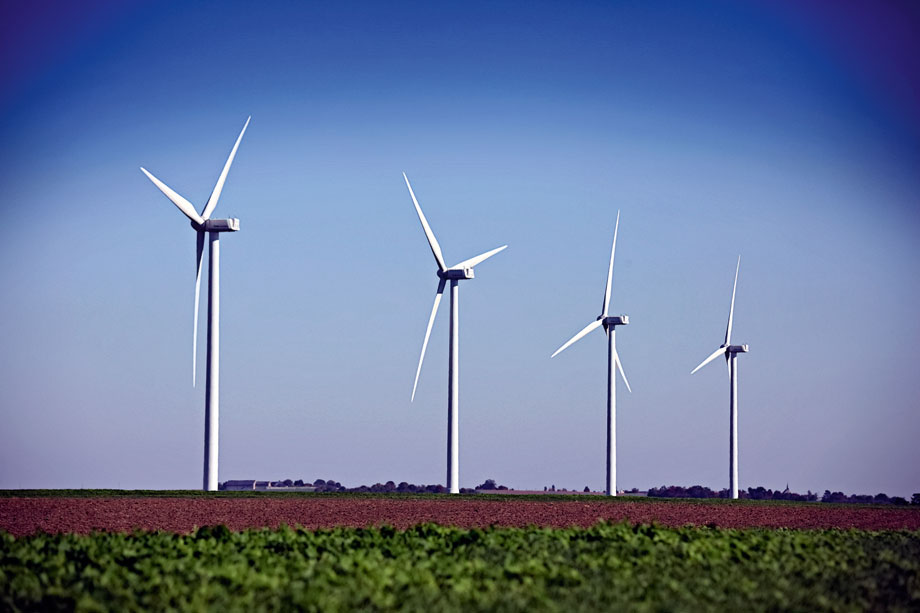Brazil nets savings through bulk order
GE's recent contract to supply 384MW of wind turbines to a Brazilian developer represents a cost reduction. The $394-million deal to supply 230 turbines of 1.68MW corresponds to EUR 784/kW, well below the average selling price in Europe of just under EUR 1,000/kW.As the deal includes a ten-year operating contract, likely to be worth about $23 million, the net price for the turbines (without the operating contract) is probably around EUR 741/kW.
With wind turbine prices this low, there is much potential to reduce the installed costs for wind farms, possibly to around EUR 1,100/kW. That would improve the competitive position of wind relative to the thermal sources of generation. However, this price is likely to have been available to the developer only because the order is so large.
Another large order has been reported by Gamesa, which is to provide 129 GE97 2MW turbines to Brazil. This contract is worth around EUR 340 million and includes operation and maintenance (O&M) for 20 years. The split between turbine prices and the O&M contract has not been disclosed but, priced separately, the total cost would probably have been at least 10-15% higher. This suggests that the developer secured a discount both on the turbine price and on the price of the O&M contract.
More of the same...
Meanwhile, Alstom Renewable Power has announced a memorandum of understanding with Renova Energia in Brazil to supply, operate and maintain around 440 onshore wind turbines for a deal in excess of EUR 1 billion. The 2.7-3MW turbines will total at least 1.2GW, delivered in 2015-2018/19. The nominal price of the turbines is around EUR 833/kW, with the net value around EUR 800/kW, or lower.
Maintenance costs remain low
US wind turbine maker GE has announced an agreement with the Taiwan Power Company to provide maintenance, repairs and spare parts for 26 turbines of 1.5MW in Taiwan.
The agreement, worth $11.4 million, corresponds to EUR 45/kW/year, which is a cost consistent with prices elsewhere. This figure represents a useful benchmark, and was used in deriving the "low end" estimates of onshore generation costs in our February feature. It confirms that O&M costs are stable.
High connection costs revealed
The costs of offshore grid connections have been highlighted by French conglomerate Alstom, which has won a contract to connect a total of 900MW of wind turbines from a number German offshore wind farms. The 83-kilometre link to the German mainland grid will use high-voltage direct current cables at +/320kV.
Construction of the terminals plus O&M for five years is included in the contract, which totals around EUR 1 billion. This corresponds to EUR1,000/kW, demonstrating why offshore wind is considerably more costly than onshore wind. Onshore grid connection costs vary, but usually range up to EUR 100/kW.
Cold weather pushes up cost of gas
A severe cold spell affecting much of Europe pushed gas prices towards EUR40/MWh, making current gas-fired generation costs around EUR 90/MWh. This is more expensive than the current generation cost of onshore wind.
While gas prices are unlikely to remain at this level into spring and summer, it illustrates one of the drawbacks of relying on fossil fuels — that the price is subject to fluctuation. Once a wind farm is built, on the other hand, the electricity price is virtually fixed, as the capital repayments account for a substantial proportion of the overall generating cost.
Length of contract key to profitability
Although construction consent has been granted for a nuclear power station at Hinkley Point in the UK, no announcement had been made by 1 April on the so-called "strike price" that will be paid for electricity from the plant. Results of negotiations between EDF and the UK energy department are keenly awaited, as they will give an indication of a realistic "private-sector" nuclear electricity cost.
Rumours in the press had suggested that the price would be around EUR 115/MWh and that the contract might be allowed to run for 35 years. A document released by the Department of Energy and Climate Change in mid-March suggested that the total cost of the first new reactor might be around EUR 4,800/kW, but stressed that this was a generic estimate and that the "costs for any particular UK project may be quite different".
This level of cost may give an insight as to why negotiations between the government and the developer have been so fraught. At EUR 4,800/kW, and with a 20 year contract, the rate of return on the investment as a whole would need to be around 9% to bring the price below the politically-sensitive £100/MWh (EUR 115/MWh). This is thought to be unacceptable to the developer, whereas a 35-year contract would enable a rate of return close to 11% while keeping the strike price below £100/MWh.

.png)


.png)










